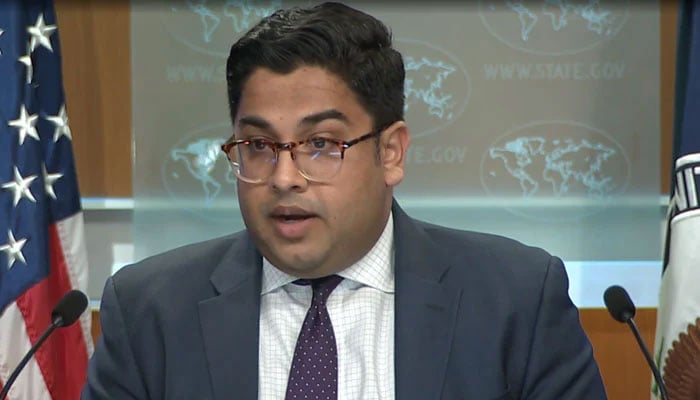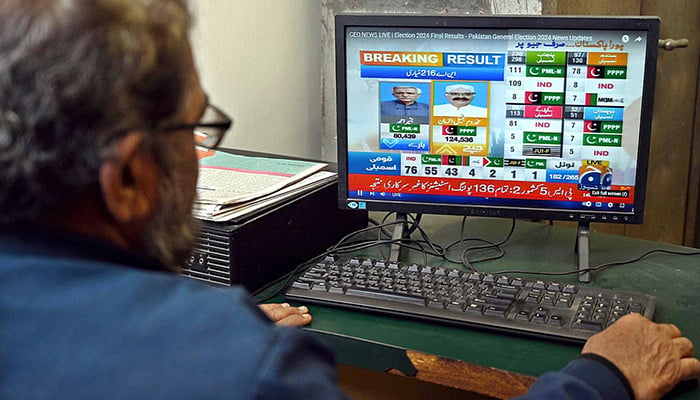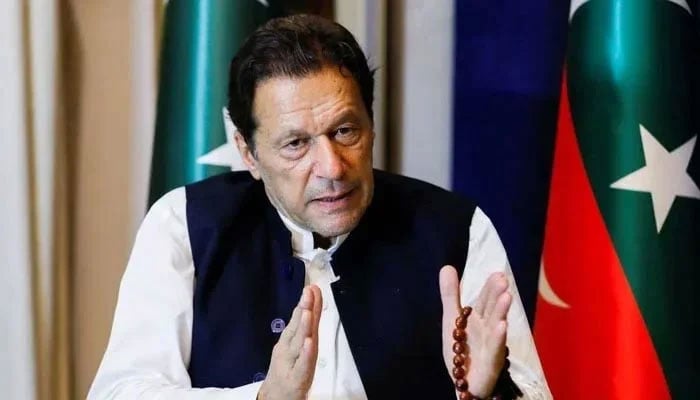US stresses ‘long-standing policy’ to deny support to Pakistan’s missile programme
State Department’s spox says US hopes to continue to engage constructively with Pakistani govt on these issues

- US calls Pakistan ‘important partner’ that shares US commitment.
- State Dept spox says US committed to non-proliferation regime.
- ‘US consistently concerned about Pakistan’s missile programme.’
The United States has said it is the country’s long-standing policy to deny support to Pakistan’s long-range ballistic missile programme, calling Pakistan an “important partner” that shares the US commitment to maintaining the global nonproliferation regime.
The US statement came hours after Pakistan’s forceful response in reaction to the State Department’s December 18 announcement of additional sanctions on entities contributing to Pakistan’s ballistic missile programme.
Earlier today, Deputy national security adviser Jon Finer said Islamabad’s conduct raised “real questions” about its intentions, saying nuclear-armed Pakistan is developing long-range ballistic missile capabilities that eventually could allow it to strike targets outside of South Asia, including the United States.
“Candidly, it’s hard for us to see Pakistan’s actions as anything other than an emerging threat to the United States,” Finer said in a speech to the Carnegie Endowment for International Peace.
Earlier today, the US reiterated that it would continue to use sanctions and other tools to protect its national security.
“The US is committed to maintaining the global non-proliferation regime and Pakistan is an important partner in that. However, we have been clear and consistent about our concerns about Pakistan’s long-range, ballistic missile programme,” Vedant Patel, the Principal Deputy Spokesperson of the US State Department said, addressing a weekly press briefing on Thursday.
“It is long-standing US policy to deny support to Pakistan’s long-range ballistic missile programme. The Department of State will continue to use sanctions and other tools to protect our national security and ensure that US exporters and US financial systems cannot be abused by proliferators.”
The spokesperson said that the US hoped to continue to engage constructively with the Pakistani government on these issues.
Replying to a question, Patel said that the US had concerns regarding Pakistan’s long-range ballistic missile programme, but they don’t affect great deal of other bilateral areas of cooperation.
US points finger to Pakistan’s missile programme
The US State Department said on December 18 that it was imposing additional sanctions related to Pakistan’s ballistic missile programme, targeting four entities that it said were contributing to the proliferation or delivery of such weapons.
The statement, issued on the State Department’s website, said that the decision was taken “in light of the continuing proliferation threat of Pakistan’s long-range missile development”.
It added that the four entities were being designated for sanctions pursuant to Executive Order (EO) 13382, which targeted proliferators of weapons of mass destruction and their means of delivery.
“Pakistan’s National Development Complex – which is responsible for Pakistan’s ballistic missile program and has worked to acquire items to advance Pakistan’s long range ballistic missile program – and Affiliates International, Akhtar and Sons Private Limited, and Rockside Enterprise – which have worked to supply equipment and missile‐applicable items to Pakistan’s ballistic missile program, including its long range missile program – are being designated pursuant to E.O. 13382 Section 1(a)(ii) for having engaged, or attempted to engage, in activities or transactions that have materially contributed to, or pose a risk of materially contributing to, the proliferation of weapons of mass destruction or their means of delivery (including missiles capable of delivering such weapons), including any efforts to manufacture, acquire, possess, develop, transport, transfer, or use such items, by Pakistan,” read the statement.
However, Islamabad reacted strongly to the development, terming the the decision as “biased” and stressing that the step from the US has “dangerous implications for strategic stability of our region and beyond”.
“Pakistan’s strategic capabilities are meant to defend its sovereignty and preserve peace and stability in South Asia. The latest installment of sanctions defies the objective of peace and security by aiming to accentuate military asymmetries. Such policies have dangerous implications for strategic stability of our region and beyond,” Foreign Office spokesperson Mumtaz Zahra Baloch said in a statement.
The Foreign Office stressed that the county’s strategic programme is a sacred trust bestowed by 240 million people upon its leadership, adding that the sanctity of this trust, held in the highest esteem across the entire political spectrum, cannot be compromised.
In September this year, Washington targeted five entities and one individual with sanctions, which were involved in the expansion of ballistic missiles and controlling missile equipment and technology to Pakistan.
Similarly, the US — in October 2023 — imposed sanctions on three Chinese companies for supplying missile-applicable items to Pakistan.
The sanctions also affected China-based firms Hubei Huachangda Intelligent Equipment Co, Universal Enterprise, and Xi’an Longde Technology Development Co. Pakistan-based Innovative Equipment and a Chinese national were sanctioned for knowingly transferring equipment under missile technology restrictions.







